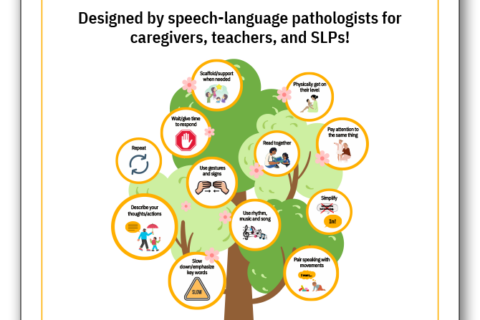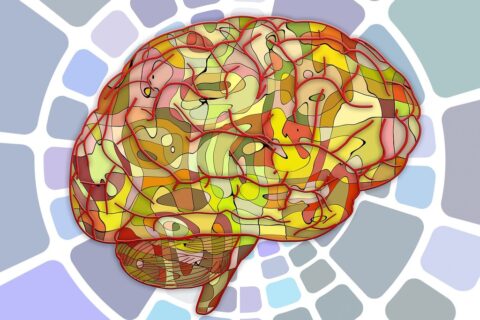Enhancing Communication Skills in Children: Tackling Receptive Language Disorders

Receptive language refers to the ability to listen and process information whether that information is presented verbally or in writing. Children with receptive language weaknesses show difficulty understanding what others are saying and interpreting written information.
Receptive language skills are foundational to various complex language abilities. This includes expressive language (i.e., speaking and writing), reading comprehension, and social communication. Children with weaknesses in receptive language may encounter academic challenges such as difficulty following instructions and extracting meaning from texts. They may additionally contend with social obstacles due to potential misunderstandings in interpersonal interactions. Below, we explore the symptoms of receptive language disorders in children and the steps we can take to enhance communication skills in children.
Symptoms of a Receptive Language Disorder in Children:
- Difficulty Following Directions: Children may find it challenging to understand and execute multi-step instructions.
- Limited Vocabulary: Challenges comprehending and quickly learning new words.
- Challenges Focussing and Listening: Difficulty focusing and processing information that is presented verbally, leading to incomplete or inaccurate understanding.
- Reading Comprehension Challenges: Challenges understanding written text and extracting meaning from it.
- Difficulty Organizing Thoughts: Challenges in linking and sequencing ideas in a logical and organized manner to express thoughts coherently.
- Trouble Interpreting Gestures: Children may exhibit difficulty understanding gestures such as nodding to indicate “yes” or shrugging shoulders to communicate uncertainty or indifference.
- May Have a Hard Time Identifying and Retrieving Named Objects: Children may not understand key vocabulary such as objects’ names making it difficult to point to or retrieve requested items.
- Difficulty Responding to Questions: Children may have a hard time interpreting and understanding questions posed to them leading to difficulty responding appropriately.
In children, these symptoms may manifest as:
- Difficulty paying attention when you’re talking to them
- Not taking interest in story books when read aloud
- Having difficulty following verbal instructions
- Challenges understanding complicated sentences
Receptive and expressive language skills are connected, forming the foundation of language and learning development. Before using a word or concept in communication, children must comprehend its meaning. Proficiency in both receptive and expressive language is vital for effective reading comprehension and written expression. This emphasizes the importance of early intervention such as targeted speech therapy exercises to bolster overall language and literacy development.
Receptive Language Weaknesses can Contribute to:
- Academic Challenges: Receptive language disorders can hinder a child’s academic performance. Itmay affect vocabulary development, reading, writing, and understanding classroom content and instructions.
- Difficulties Navigating Social Interactions: Difficulty processing information efficiently can lead to missed information or misunderstandings in conversations. This may cause challenges in appropriately responding to conversations and trouble maintaining relationships with peers.
- Behavioral Issues: Frustration stemming from communication difficulties may manifest as behavioral problems including frustration, agitation, feelings of anxiety, and being overwhelmed. Over time, this may impact a child’s emotional well-being.
Treatment:
Fortunately, speech therapy for kids is an easy and efficient way to treat receptive language weaknesses. With the support of a licensed speech-language pathologist and targeted speech therapy exercises, your child can acquire the tools and strengthen the skills required to become a strong and thriving learner.
At Open Lines®, our dedicated team of pediatric speech therapists specializes in evidence-based treatments for receptive language disorders in children. Our approach begins with a thorough evaluation by expertly trained licensed pediatric speech therapists to identify specific challenges in understanding and processing language. Drawing from the latest research and therapeutic techniques, we collaborate with you and other professionals to tailor personalized treatment plans and speech therapy exercises that address each child’s unique goals and needs.
Our interventions focus on enhancing receptive language skills through engaging activities and multisensory exercises. We aim to foster improved comprehension, stronger communication abilities, and enhanced self-confidence.
In collaboration with parents, educators, and care partners, we create a supportive environment for children to thrive in both academic and social settings.
Strategies and Speech Therapy Exercises to Enhance Early Language Development:
- Model: Model words and vocabulary by slowing down your rate of speech and bringing attention to how you say a word by holding objects up to your mouth. This way, children will see the object and pay attention to its associated word.
- Repetition: Children need many many exposures to a word or concept to comprehend and retain its meaning. Verbal routines are an effective (and fun!) way to build repetition and exposure to everyday language in daily activities.
Verbal routines are phrases said in the same way during the same activities. This helps children anticipate what is coming next making it easier to participate in the activity.
Examples:
-Ready, Set…Go!!!
-Sing a song about getting dressed or washing hands as this is an activity performed multiple times a day and will increase exposure to the words and their meanings (e.g., “this is the way we put on our socks, put on our socks, put on our socks…)
- Pair Words with Movement and Gestures: This helps increase engagement, hold attention, and provide multisensory input enhancing children’s connection of a word to its meaning.
Try:
-Jumping on/off the couch while working on the words “on/off”
-Hokey pokey song for words “in/out” and different body parts
We recommend integrating these strategies into everyday functional routines as much as possible. These could include washing hand routines, getting dressed, preparing and eating food, park outings, and play.
Reading is another great opportunity for building receptive language skills in early learners. We recommend books that offer:
- Repetition: This will make it easier for your child to participate as they’ll hear the words over and over again.
- Rhyming: Recognizing rhyme is an important pre-literacy skill-and it’s also fun!
- Routines: Books that focus on activities/routines your child experiences every day will help increase their vocabulary about these concepts and give them more opportunities to practice them!
- Opportunities for participation: Books that have flaps, buttons, pop-ups, etc, are fun and help keep your child engaged in reading activities.
Looking for more tips and activities to strengthen language development? Check out:
Speech Milestones: A Guide for Parents
How do I Support My Child’s Speech and Language During the Summer?
Tips for School-Aged Children:
- Visual Supports: visual aids, charts, graphic organizers that link ideas, and diagrams to complement verbal instructions.
- Guided Notes: Structured outlines or frameworks are provided to students to support their learning during lectures or lessons.
- Word walls: Word walls with key vocabulary relevant to the target content
- Word Identification: Teach recognition of word roots to help children determine the meaning of new words they encounter
- Visualizing and Verbalizing Skills: Teach children to develop mental imagery of the words and concepts they hear to help them effectively encode information making it easier to retain details and use it to respond to complex questions
- Multisensory Learning: Engage all the senses especially actions and games to increase engagement, hold attention, or strengthen the connections between words and their concepts
- Activating Prior Knowledge: When introducing a new topic, ask a child what they know about the topic or what they think the title of a book may be about.
- Asking Questions: When reading, ask questions about the story to promote comprehension and critical thinking.
- Modeling Think Alouds: Teach children how to engage with content and think critically by modeling out loud “I wonder what will happen when….” or “I wonder why the character chose to….and how the other characters will respond…”
- Information Display: Presenting information through various modalities (visual, auditory, tactile).
At Open Lines®, we are committed to empowering children with receptive language disorders. Our goal is to guide them toward confident and effective communication for a brighter future. Visit OpenLines.com to learn more about our specialized treatments and supportive programs.
If you’re struggling with communication difficulties, it’s time to turn to Open Lines®. Contact us via phone (212-430-6800), email [email protected], or by filling out our convenient contact form. Improve your communication skills and unlock your potential with Open Lines® Speech and Communication in New York today!
Get in Touch With Open Lines®














